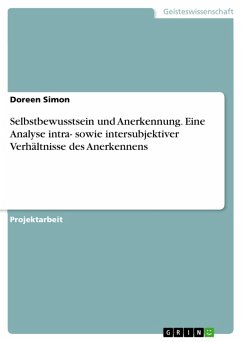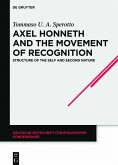The problem of intersubjectivity or the problem of other minds is one of the most discussed philosophical problems in philosophy of the 20th century. In this century different solutions of this problem have been developed, not only in phenomenology and in critical theory, but also in analytical philosophy. In these approaches the philosophy of German idealism has been almost forgotten, despite the fact that in German idealism the problem of intersubjectivity was formulated for the first time in the history of philosophy. Through analysis of the texts of the German idealists, and through discussion of analytical philosophers, this book attempts to show that intersubjectivity is, for the philosophy of German idealism, in no way an epiphenomenon of self-consiousness, but rather an immanent part of self-consciousness, and therefore the way in which German idealism deals with this problem can be inspiring for its philosophical reflexion.
Dieser Download kann aus rechtlichen Gründen nur mit Rechnungsadresse in A, B, BG, CY, CZ, D, DK, EW, E, FIN, F, GR, H, IRL, I, LT, L, LR, M, NL, PL, P, R, S, SLO, SK ausgeliefert werden.









